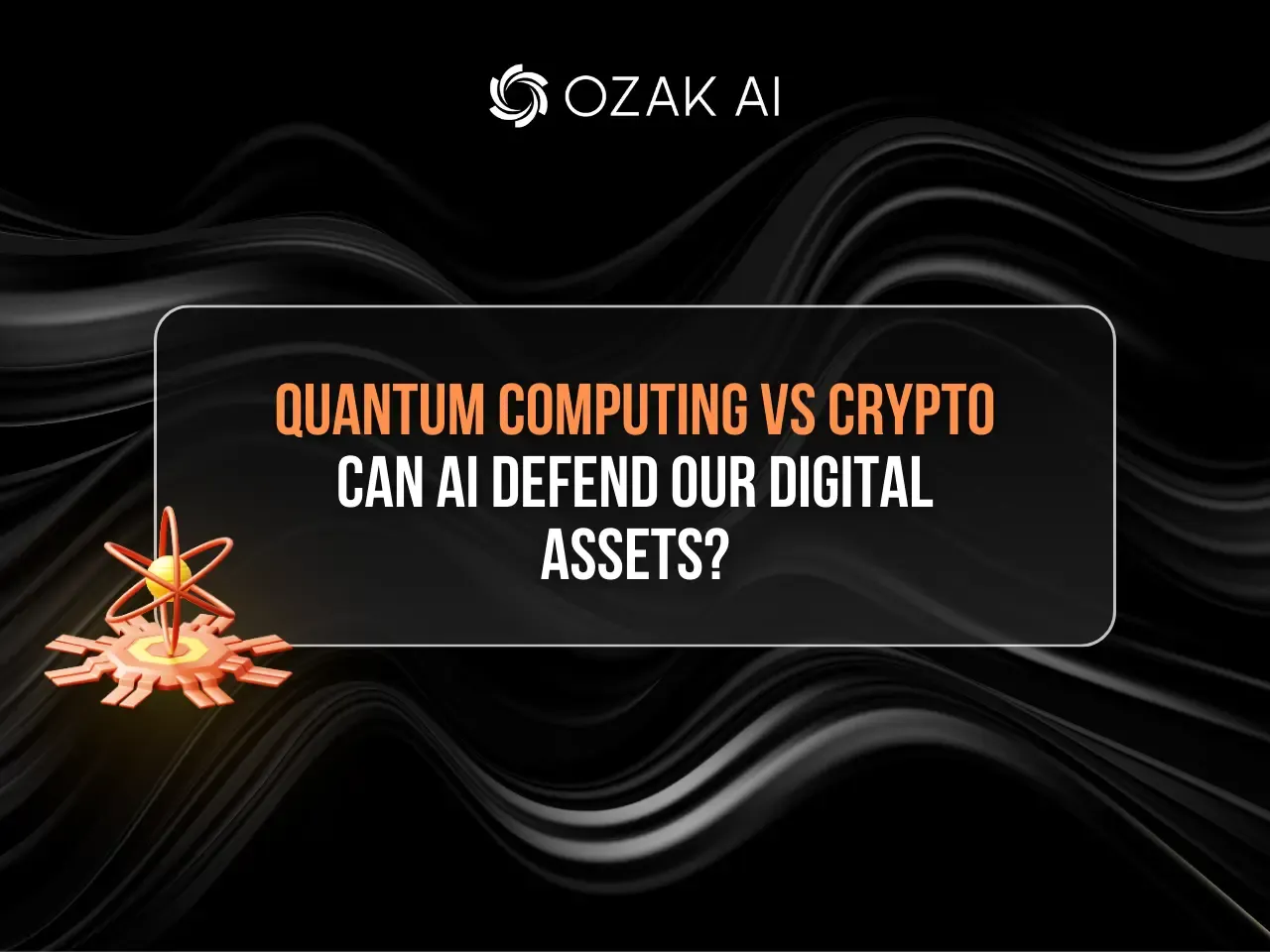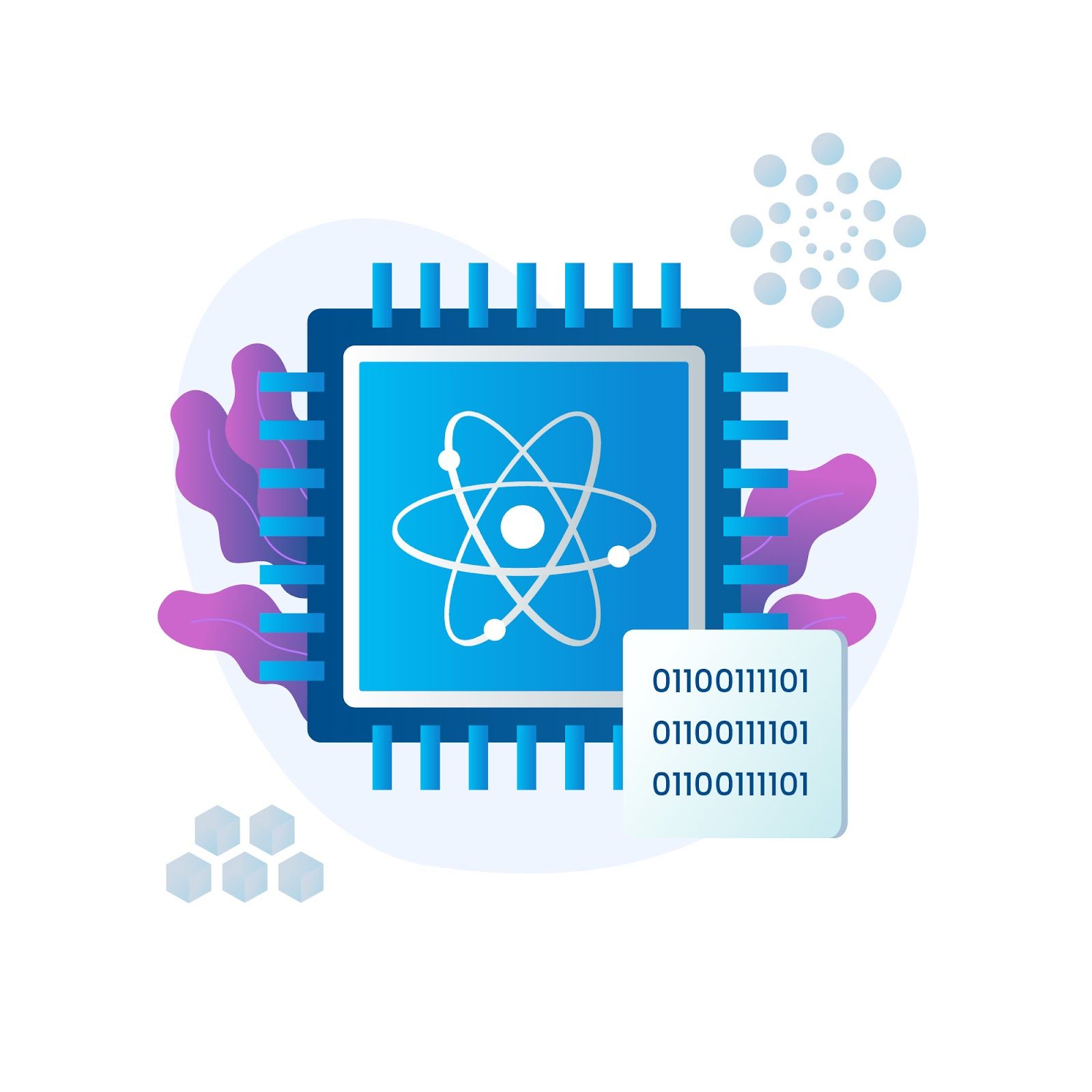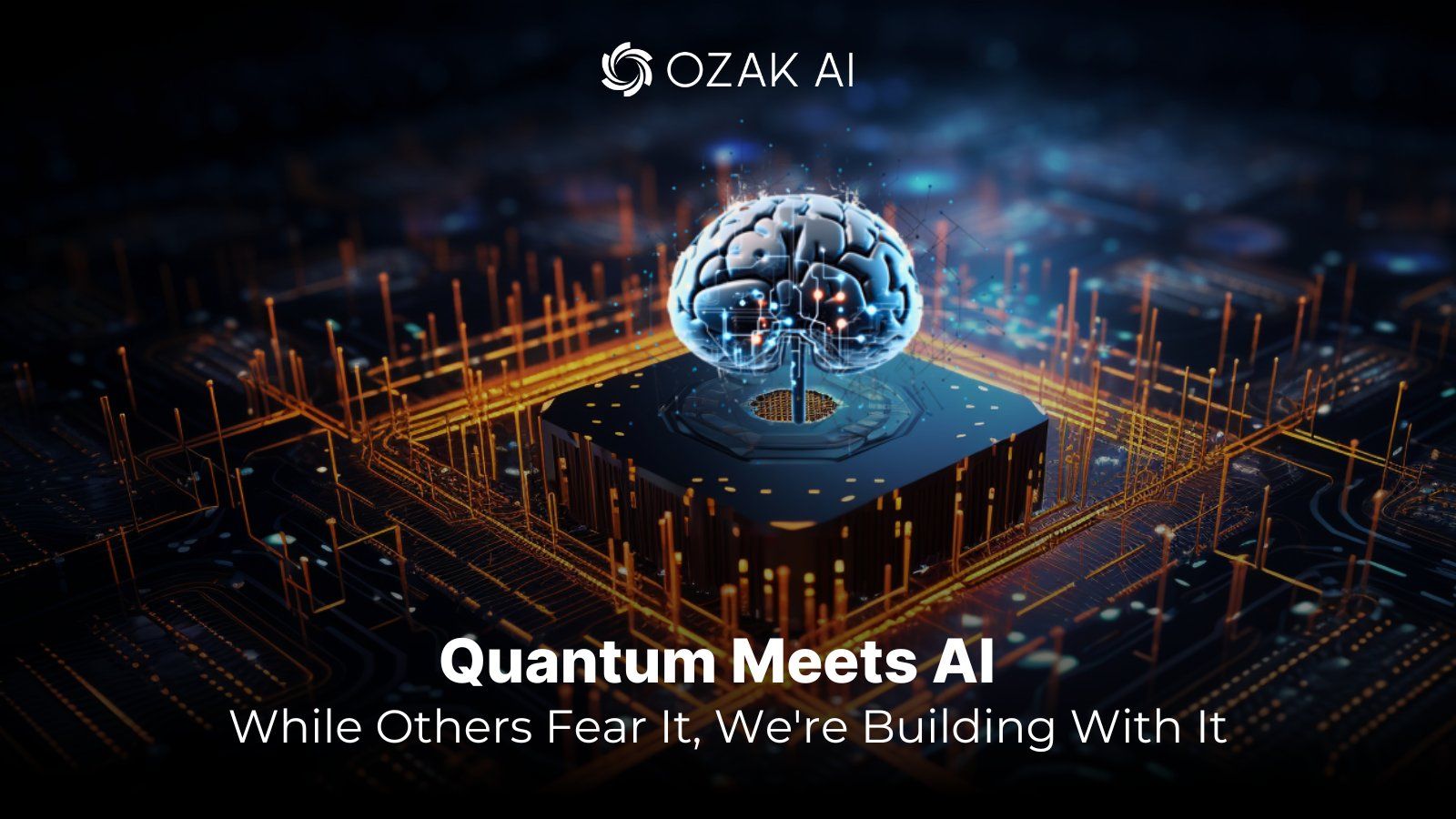
The tech sector’s rapid pace of evolution is both a marvel and a menace. Nowhere is this paradox more evident than in the looming clash between quantum computing vs crypto (cryptography), the very backbone of blockchain and digital assets. Blockchain is barely out of its cradle yet, but quantum computing could become a reality very soon, and with that rises an important question: Can AI stand as the last line of defense?
The Quantum Threat to Cryptography

Digital assets like Bitcoin, Ethereum, etc., use public-key cryptography to ensure security. This method works perfectly with classic computers. But quantum computing is a different kind of monster - its ability to use algorithms like Shor’s Algorithm to process and factor large integers exponentially faster could devastate these cryptographic protocols.
Quantum computing could theoretically:
- Break RSA and ECC encryption, rendering wallets and transactions vulnerable.
- Forge digital signatures, enabling malicious actors to impersonate users.
- Undermine the trustless nature of blockchain itself.
Experts believe that within the next 10-15 years, quantum supremacy could be achieved to a degree where current encryption becomes obsolete. While that may seem like a long time, the rapid advancement of quantum computers suggests we may need defenses much sooner.
Enter AI: Crypto’s Silent Guardian (and Watchful Protector? Get it?)
If you understood that Dark Knight reference, you probably understand that AI is uniquely positioned to act as a real-time defender of the security of crypto. But how exactly does it stand against the quantum menace?
- Predictive AI for threat modeling
Predictive AI, particularly those like the predictive agents here at Ozak AI, are capable of simulating attack vectors based on evolving computational patterns. With the help of neural networks and reinforcement learning, our predictive AI models can detect abnormal behavior in blockchain activity before it escalates into a breach in crypto security.
- Quantum-resistant protocol development
AI can accelerate the creation and optimization of post-quantum cryptographic algorithms (PQC). These are encryption schemes designed to be secure even against quantum computers. Traditional development of such protocols could take years, but AI can streamline this via:
- Generative design of new algorithms
- Simulation of quantum attacks in controlled environments
- Optimization of code for real-world deployment
- Self-evolving crypto security
Predictive AI agents can evolve with the help of quantum computing-based simulations and real-time network data. Platforms like ours combine AI and decentralized infrastructures to develop adaptive cryptographic frameworks that upgrade themselves without hard forks. This would ensure robust security of crypto against emerging threats.
Quantum Computing vs Crypto: A New Arms Race
We’re entering an era where data sovereignty and crypto security will depend on how quickly we can respond to evolving computational developments. Quantum computing isn’t just another step in processing power - it’s a huge shift.
This sets the stage for a new arms race:
- Quantum attackers could brute-force private keys or exploit vulnerabilities in smart contracts.
- AI defenders will act in real time, scanning thousands of parameters across chains to quarantine compromised nodes or flag rogue actors.
But not all AI is built equal. The future will depend on platforms that combine predictive AI, decentralized infrastructure, and scalable architecture.
How Ozak AI Fits Into the Equation

Ozak AI isn’t just another blockchain analytics tool. We represent a new breed of AI-native infrastructure designed for the DePIN (Decentralized Physical Infrastructure) era. With a focus on predictive AI, real-time security response, and agent-based intelligence, our platform is ideally suited to act as the next level of security for crypto against quantum threats.
Key strengths include:
- Predictive AI for anomaly detection in decentralized networks
- Smart AI agents trained to perform crypto security checks for financial markets and assets.
- Integration of quantum-resistant protocols within our ecosystem.
As the quantum threat intensifies, solutions like ours will become indispensable - not just for crypto security but also for governments, DeFi platforms, and even traditional financial institutions venturing into Web3.
Ozak AI Crypto Presale
The presale of our $OZ token has been designed to encourage early adoption and community participation. Our token features fair and distributed tokenomics, solid token utility, and controlled emission and vesting. Participate in the presale to gain a significant first-mover advantage with excellent long-term growth potential.
Our presale is currently live and approaching its 4th phase. At this point in the 3rd phase, our $OZ token is priced at $0.003, marking a 200% increase since the 1st phase. Our crypto presale has garnered remarkable interest, with over a million dollars raised so far.
Looking Ahead: A Triumvirate Future of AI, Blockchain & Quantum
Ironically, the very technologies that threaten crypto security may also save it. Here’s how the synergy might unfold:
- Quantum computing will demand stronger cryptographic methods.
- AI will design and enforce those methods in real time.
- Blockchain will serve as the immutable layer that records and verifies those updates.
Instead of choosing sides in the quantum computing vs crypto battle, the smart path is collaboration. When AI bridges the gap between quantum and blockchain, we open doors to hyper-secure financial networks and autonomous digital economies.
Conclusion: Prepare, Don’t Panic
The battle of quantum computing and cryptography is a real and a pressing problem, but one that is not insurmountable. This threat to crypto security must be dealt with through proactive innovation, not reactive defense. The kind of adaptive and proactive AI championed by us at Ozak AI can serve as a formidable shield, detecting and neutralizing threats faster than humans or traditional computer systems.
Crypto holders, developers, and investors should begin asking themselves:
- Is our current infrastructure quantum-safe?
- Are we integrating AI that evolves with threats?
- Are we ready for a future where AI becomes the first - and last - line of defense?
Because in the battle of quantum computing and crypto, AI may be the ultimate referee.
Visit our website ozak.ai to learn more about us. You can also follow us on X and Telegram to get all the latest updates.
Disclaimer: The crypto markets are subject to high risks and volatility. Do your own risk analysis before investing in any crypto AI projects or crypto presale.
FAQs
Which crypto is quantum proof?
Currently, most cryptos aren't quantum-proof, but projects like QANplatform and Quantum Resistant Ledger (QRL) are designed with quantum-resistant algorithms.
Is Solana quantum-proof?
No, Solana is not currently quantum-proof. Like most blockchains, it uses cryptographic algorithms (such as Ed25519) that could be vulnerable to quantum attacks in the future. However, the Solana community is exploring post-quantum cryptography to address this risk.
Can a quantum computer crack Bitcoin?
In theory, a powerful quantum computer could crack Bitcoin’s encryption, but current quantum tech isn't advanced enough to do so yet.
Is quantum encryption real?
Yes, quantum encryption is real. It uses quantum mechanics, like quantum key distribution (QKD), to create ultra-secure communication channels.
Is quantum computing a good investment?
Yes, quantum computing is a promising long-term investment due to its potential to revolutionize industries like finance, healthcare, and cybersecurity.

